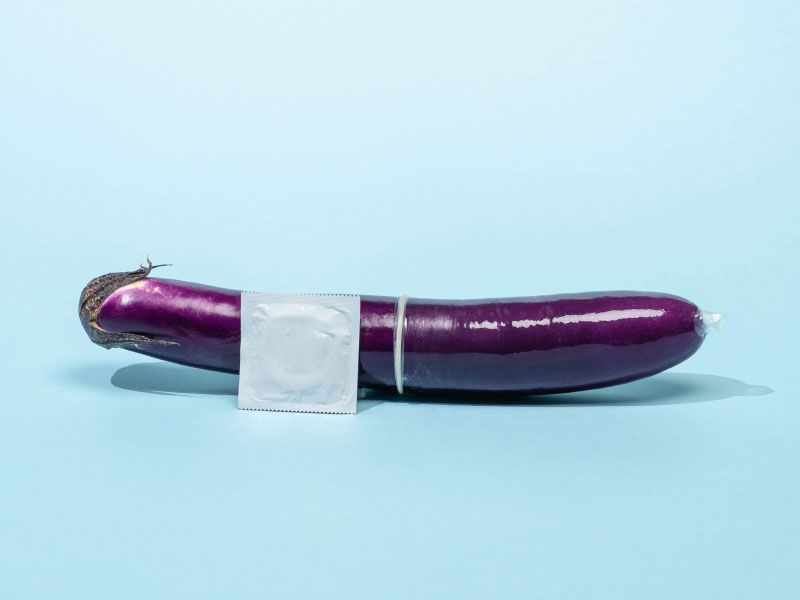Cycle tracking as a
mindfulness practice
By Nkechi Njaka
May 23, 2023
What is cycle tracking?
Cycle tracking is the process of noticing, observing and recording the changes in one's menstrual cycle. This includes the length of the cycle, the duration and amount of bleeding, and any other symptoms (mood, cramps, fatigue, pain) experienced during the cycle. While cycle tracking is often used as a means of birth control, it can also be used as a mindfulness practice.
How can mindfulness help?
Mindfulness is the practice of bringing our attention to the present moment, without judgment. Tracking one's cycle requires close attention to the physical and emotional changes that occur during the four menstrual cycle phases. This deep awareness of the body is a practice of mindfulness.
By paying attention to the body's natural rhythms, we can develop a deep understanding of our physical and emotional needs. Tracking your cycle can help you identify patterns in mood, changes in energy levels, and any physical symptoms you might be experiencing. This mindfulness and attention can also help in developing self-care strategies that support these different phases of the menstrual cycle.
Subsequently, cycle tracking can encourage a sense of self-awareness, connection and empowerment. This practice allows us to actively participate in our reproductive health. From here, we can make informed decisions about our bodies and what it needs. Not to mention, this increased awareness and attention can also help in cultivating a positive body image as well as a high sense of high self-esteem and self-worth.
What does mindfulness look like?
Mindfulness has been shown to reduce stress. Here are some ways to incorporate mindfulness in tracking menstrual periods to regulate your nervous system and find groundedness:
Body Scan: Take a few moments each day to do a body scan and notice how you are feeling physically and emotionally. This practice can help you become more aware of any changes or symptoms that may be related to your menstrual cycle.
Mindful Breath: Practice mindful breathing techniques to calm the mind and reduce stress. This can be especially helpful during times when menstrual symptoms are particularly intense. ** Gratitude Practice:** Cultivate gratitude for your body and the natural processes that occur within it. This can help shift the focus away from negative symptoms and toward a deeper appreciation for the body's ability to support health and well-being.
Journaling: Keep a journal to track changes in menstrual symptoms and how they may be related to the different phases of the menstrual cycle. This can identify patterns and gain a deeper understanding of your body's natural rhythms.
Self-Care: Incorporate self-care practices into your daily routine, such as taking a warm bath, practicing gentle yoga, or getting enough rest. These practices can help support overall well-being and promote a deeper connection with the body.
How can I track my cycle?
Before the days of apps and smartphones, people used to track their cycles with a pen and a calendar. First, you’ll need to collect data about how long your average cycle lasts—keep track of the length of your period and how much time passes between periods. Cycles are typically between 26 and 32 days long and vary from person to person.
Of course, nowadays you can use technology to keep track of your cycle. Apps like Clue, Flo, or Ovia, allow you to enter information about your symptoms and period days to make it a little easier to know what phase of your cycle you’re in and when your period will arrive. According to a survey conducted by Clue, over 50% of their users tracked their menstrual cycles for contraceptive purposes, while around 30% did so to monitor their general health. Even with the rise of apps to help track cycles and overall health, it's always a good idea to consult with a healthcare provider for advice on family planning and other reproductive health concerns.
What are the menstrual phases?
By tracking our menstrual cycles, we can know what phase of the menstrual cycle we’re in and gain valuable insights into our reproductive health, including the regularity/ irregularity and duration of our periods, changes in our menstrual flow, and the timing of ovulation. This information is useful for identifying potential health concerns, such as irregular periods or hormonal imbalances, and to make informed decisions about contraception and family planning.
As described by the NIH, the menstrual cycle is typically divided into four phases:
- Menstrual Phase: This is the phase when menstruation occurs, typically lasting for 3 to 7 days. Hormone levels are low during this phase, which can cause symptoms such as cramps, headaches, and fatigue. During this phase, the uterus sheds its lining, causing bleeding.
- Follicular Phase: This phase begins after the menstrual phase ends and lasts for approximately 7 to 10 days. During this phase, the pituitary gland in the brain releases follicle-stimulating hormone (FSH), which causes the development of a follicle in the ovary. As the follicle grows, it releases estrogen, which thickens the uterine lining in preparation for a possible pregnancy.
- Ovulatory Phase: This is the phase when ovulation occurs. Ovulation is the release of an egg from the ovary into the fallopian tube, where it can potentially be fertilized by sperm. Estrogen levels peak during this phase, triggering the release of luteinizing hormone (LH), which stimulates ovulation.
- Luteal Phase: This phase begins after ovulation and lasts for approximately 10 to 14 days. During this phase, the ruptured follicle in the ovary forms a corpus luteum, which produces progesterone to thicken and prepare the uterine lining for possible pregnancy. If the egg is not fertilized, the corpus luteum breaks down, causing a decrease in hormone levels and the start of a new menstrual cycle. If fertilization does occur, the pregnancy hormone human chorionic gonadotropin (hCG) will maintain the corpus luteum and prevent menstruation.
What if I have painful periods?
You aren’t alone! A lot of people experience periods and period symptoms that may fall outside of what may be considered the “norm.” Here are some important statistics around menstrual cycle issues that may sound familiar or impact someone you know:
- Menstrual Irregularities: According to the American College of Obstetricians and Gynecologists, around 14-25% of women experience irregular menstrual cycles, which can include variations in the length of the cycle, the amount of bleeding, and the frequency of periods.
- Dysmenorrhea, or painful menstrual periods, affects approximately 45-95% of menstruating women, with around 10% experiencing severe symptoms that interfere with daily activities.
- Premenstrual Syndrome (PMS) affects around 85% of menstruating women, with symptoms ranging from mood changes, breast tenderness, bloating, and fatigue.
- Endometriosis, a condition in which the tissue that normally lines the inside of the uterus grows outside of it, affects an estimated 10% of women of reproductive age, and is a leading cause of infertility.
- Polycystic Ovary Syndrome (PCOS) a hormonal disorder that affects approximately 5-10% of women of reproductive age, can cause irregular menstrual cycles, acne, weight gain, and infertility.
If you find your period interferes with your life, don’t hesitate to talk to a licensed medical provider about your symptoms. They’ll be able to talk you through your treatment options and provide support.
By noticing, paying attention and tracking our menstrual cycles, we can gain valuable insights into our menstrual health and identify potential issues that may require medical attention. Tracking is a radical way of empowering ourselves and learning about our bodies. Overall, cycle tracking is a valuable mindfulness practice as it encourages a deeper connection with the body while promoting a sense of self-awareness and empowerment.
Nkechi Deanna Njaka (she/her) is a practice-based researcher, neuroscientist, choreography artist, leading mindfulness expert and meditation guide. She is the founder of The Compass, NDN lifestyle studio and co-founder of the sleep app DreamWell. When not publicly speaking on mindfulness, guiding people in wellness or somatic practices, Nkechi is the co-host of the podcast Dating White and the other 1/2 of the music and mindfulness project RESONANCE. Through her work, research, practice and study, she discovered that mindfulness and creativity are crucial for sustaining individual and global wellbeing. Her work intersects wellness, science, art and social practice.
Shop Wellness Essentials

OMG! Cream - old
Starting at $11
A topical prescription cream that increases blood flow to the clitoris leading to better, more fulfilling orgasms.

pH Balancing Feminine Wash
Starting at $14
A gentle cleanser for your most sensitive skin. No dyes or artificial fragrance.

Original Harmonizing Lube
Starting at $10
Silicone-based to reduce friction and make sex easier, more pleasurable, and more fun.

Wisp Equalizing Probiotics
Starting at $18/ month
The Wisp Equalizing Probiotics is a daily supplement that contains 25 billion CFU’s of 9 powerhouse probiotic strains (more “good” bacteria!).

